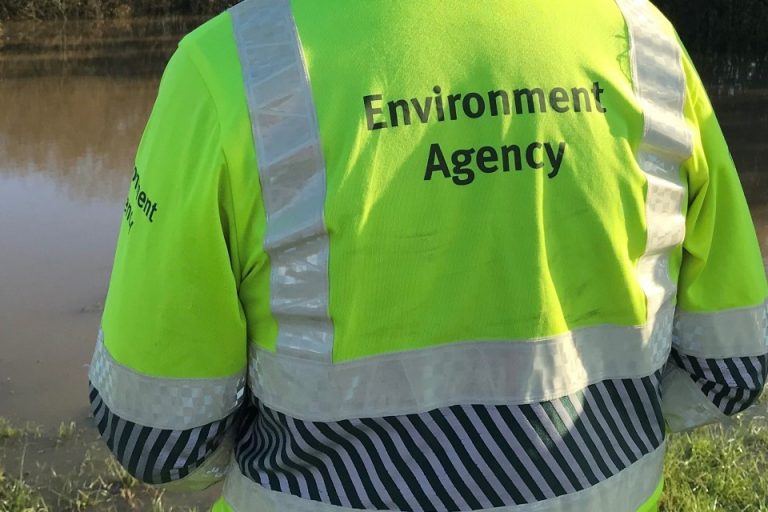Major remediation works complete on 12-acre York gas works site
Permit revoked at Yorkshire waste site after regulatory breaches
The Environment Agency has revoked the environmental permit for Mineral Processing Ltd’s South Elmsall waste site following multiple breaches and a failed appeal against an earlier suspension notice.
The revocation means the company must stop all permitted waste activities and begin removing material from the site. The company has 20 working days to appeal, during which the permit remains active.
This action follows a ruling from the Planning Inspectorate on 3 June, which dismissed the company’s appeal against the Environment Agency’s 2024 suspension notice. The Inspectorate found the site held significantly more waste than permitted, including unauthorised and hazardous materials, and posed multiple pollution risks. These included groundwater and surface water contamination, air pollution from dust and odour, and increased methane levels.
Mineral Processing Ltd is now under investigation for suspected offences committed since the suspension notice was issued. The Agency is also assessing further enforcement actions, including prosecution.
Monitoring efforts are ongoing, including odour tracking and site inspections. The operator has been ordered to submit an Odour Management Plan. The Environment Agency is working in partnership with Wakefield Council and the UK Health Security Agency.
AI and copyright risk collide in UK screen sector
A new British Film Institute (BFI) report has spotlighted pressing legal, ethical, and operational risks posed by the use of generative AI in the UK’s screen sector. The study, conducted in partnership with CoSTAR universities Goldsmiths, Loughborough, and Edinburgh, warns that training AI models using copyrighted scripts without consent could destabilise the industry’s IP-driven economy. With film and TV content forming the backbone of UK screen exports, any devaluation of original content poses a threat to its long-term commercial viability.
The report also highlights the impact of automation on creative jobs, raises concerns about biased data in generative content, and discusses the environmental toll of energy-intensive AI processes. Despite these challenges, the BFI notes that the UK is well-positioned to lead in AI-powered creative technology, with over 13,000 firms in the sector. It highlights initiatives from the BBC and Charismatic consortium (Channel 4 and Aardman-backed) aimed at democratising AI access for content creators.
To ensure resilience and competitiveness, the report recommends a national strategy that includes licensing intellectual property (IP) for AI use, embedding green standards, investing in workforce skills, and supporting independent creators with ethical AI tools. The findings form part of CoSTAR’s broader £75.6m programme to futureproof UK digital entertainment leadership.
£37m plan unveiled to get West Yorkshire working
Yorkshire sees continuing fall in insolvency-related activity and business start-ups
Commercial door and roller shutter system service provider sold
Leeds Beckett earns reaccreditation for SME support
Leeds Beckett University has secured reaccreditation of the Small Business Charter Award, recognising its continued contribution to SME growth, innovation, and leadership development across the region.
First granted in 2016, the accreditation highlights the university’s long-term impact on small business ecosystems through initiatives such as Knowledge Transfer Partnerships, the Help to Grow: Management programme, and its dedicated Leadership Centre.
The reaccreditation signals Leeds Beckett’s role as a key B2B partner for SME engagement, with a focus on innovation, workforce development, and succession planning. Examples include collaborations with Colchester Machine Tool Solutions on leadership transformation and culture change, as well as Aquatrust on remote monitoring innovation for the water hygiene sector.
The award, valid for five years, places Leeds Beckett among a select group of UK institutions recognised for excellence in SME support, positioning it to scale its role in regional economic development further.
Data centre project raises emissions concerns for UK businesses
A proposed £10 billion AI data centre in Lincolnshire has sparked environmental scrutiny, with projected annual carbon emissions exceeding 850,000 tonnes, five times more than Birmingham Airport. The 15-warehouse facility, planned for a site east of Scunthorpe, is currently under public consultation and would draw 3.7 billion kWh of electricity a year, according to documents reviewed by national media.
The proposal highlights growing concerns among stakeholders over the environmental footprint of AI infrastructure. Researchers have noted that AI’s exponential computing demands far exceed those of traditional IT, resulting in increased energy use and water consumption for cooling. In some regions, data centres have been accused of competing with local communities for essential water supplies.
Industry experts warn that the rapid deployment of AI has outpaced the development of environmental oversight. While AI offers potential efficiencies, the infrastructure behind it remains resource-intensive, raising questions for companies that balance digital transformation with their ESG responsibilities.
The data centre debate comes as the Labour government pledges to position the UK as an “energy superpower” while simultaneously pushing for a 20-fold increase in AI computing capacity. Environmental organisations are closely monitoring developments, with legal challenges likely if climate commitments are not upheld.
Evri ramps up hiring after DHL deal
Evri is set to hire 5,000 additional couriers across the UK as part of a major expansion following its agreement to merge with DHL’s UK ecommerce business. The new hires will boost Evri’s self-employed courier network to 33,000, the highest in its history.
Roughly 1,000 of the new roles will be permanent, with the remainder offering flexible terms to meet heightened demand during the summer and peak delivery seasons. Recruitment will target key regions including Plymouth, Bury, Hastings, Dover, and Scarborough.
The hiring surge comes on the heels of Evri’s recently announced joint venture with DHL, creating one of the UK’s largest parcel and letter delivery companies. The move signals Evri’s entry into the business letter market, where it will now compete with Royal Mail. The merged business expects to handle more than one billion parcels and one billion letters annually.
Evri, formerly Hermes, was acquired by Apollo Global Management last year in a deal valued at approximately £2.7 billion. It has since invested £32 million in improving customer service, though delivery performance remains a priority area for improvement. The firm says its couriers earn an average of £20.90 per hour.
New employment park planned for Scunthorpe growth corridor
A 77-acre business park is set to be developed near junction 3 of the M180 as part of the Lincolnshire Lakes strategic growth zone. The project, named Forge Point, is being led by property developer Hargreaves Land and will form part of a wider mixed-use development that includes thousands of new homes and community infrastructure.
Forge Point is positioned to accommodate up to 959,300 square feet of new commercial space and is expected to offer both freehold and leasehold design-and-build options. It sits adjacent to land earmarked for 550 homes, forming part of a larger 6,000-home target across the Lincolnshire Lakes scheme.
The business park aligns with the area’s Area Action Plan, which supports the integration of high-tech business units, offices, and hospitality facilities to drive long-term economic development.
The site’s proximity to major transport links and a growing residential base is expected to appeal to logistics, advanced manufacturing, and professional services firms seeking scalable space in the North Lincolnshire region.












